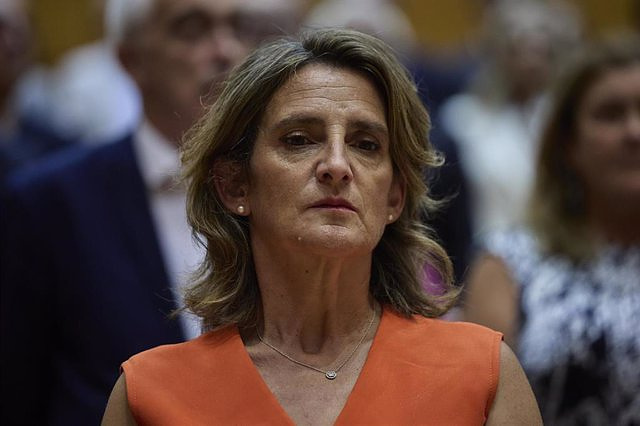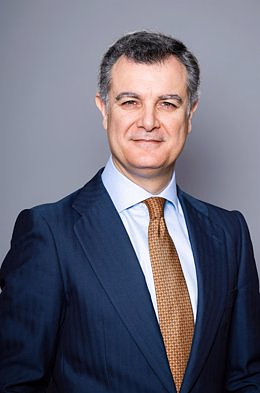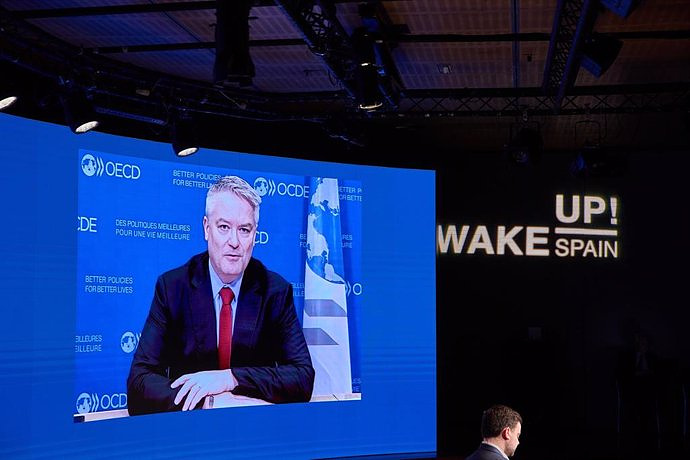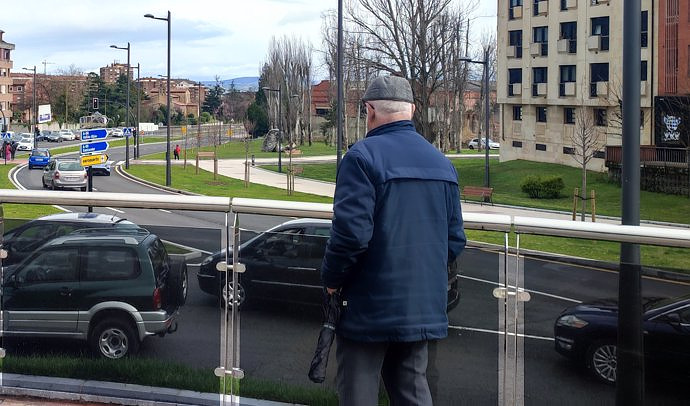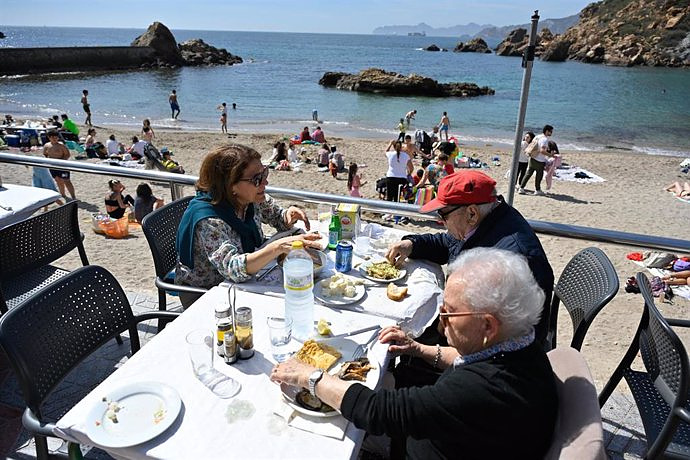Previously, he receives the CEO of Endesa, José Bogas, at the Ministry
MADRID, 7 Sep. (EUROPA PRESS) -
Teresa Ribera, third vice president of the Government and minister for the Ecological Transition and the Demographic Challenge, meets this Wednesday with representatives of the UGT, CCOO, CEOE and Cepyme, within the framework of the round of talks for the preparation of the Contingency Plan.
The meeting is scheduled for 6:00 p.m. Previously, Ribera meets with the president of Endesa, José Bogas.
In the context of the design of the Contingency Plan that the Government must send to the European Commission, the Energy Sector Conference is also meeting today under the presidency of Ribera.
The meeting will allow to analyze the proposals for the elaboration of said Plan that the autonomous communities and the city councils, through the Spanish Federation of Municipalities and Provinces (FEMP), have sent to the Ministry for the Ecological Transition during the last weeks.
These meetings, which are part of the design of the Contingency Plan that the Government must send to the European Commission within the community strategy to deal with the impact of the war in Ukraine, are part of the round of talks of the Third Vice President with the main sectoral, industrial, social, political and civil society agents to analyze the situation and collect proposals that help Spain reduce its gas consumption, in accordance with the commitment made in the European framework.
Within the round of contacts, Ribera held a meeting on Monday with the Alliance for the Competitiveness of the Spanish Industry, made up of large business organizations from different sectors, after last Friday's meeting with the Spanish Cogeneration Association (Acogen), and the Spanish Association for the Promotion of Cogeneration (Cogen).
Previously, on Thursday he met with representatives of the parliamentary political formations and the Ministry of the Presidency, Relations with the Courts and Democratic Memory.
Over the last week, the third vice-president of the Government has already met with different actors in the sector, such as the presidents of Naturgy, Francisco Reynés; from Iberdrola, Ignacio Sánchez Galán, and from Redeia, Beatriz Corredor; as well as with the CEO of Enagás, Arturo Gonzalo Aizpiri. She has also held meetings with representatives of the electricity (Aelec) and gas (Sedigas) employers.
This round of talks comes after the validation in Congress, last week, of the energy saving decree, which will finally be processed as a bill for the inclusion of some modifications demanded by the government partners.
The decree, whose measures will continue to be applied despite being processed as a bill, includes the first package of energy saving measures planned to comply with the voluntary reduction in gas consumption, given the risk of a supply cut by Russia , as well as aid for the promotion of public transport such as free Cercanías, Rodalíes and Media Distancia services from September 1 to the end of the year.
This energy saving plan, which will be completed with the design of the Contingency Plan, limits heating and cooling temperatures to 19 and 27 degrees Celsius, respectively, in public administration buildings, commercial establishments such as department stores or shopping centres, cultural spaces or transport infrastructures such as stations or airports. The norm excludes hospitals, educational centers, gyms, hairdressers or restaurant kitchens.
Likewise, it requires the lights of shop windows and unoccupied public buildings to be turned off after 10:00 p.m. and requires that before September 30, both buildings and premises have automatic closures on access doors to prevent them from being permanently open.
Commercial spaces, public buildings, cultural spaces and hotels that fail to comply with the energy saving and efficiency plan approved by the Government will face fines of up to 60,000 euros for minor infractions, up to six million euros for serious infractions and up to 100 million euros for the very serious.
The same decree law also contains new calls for aid for land transport of goods, speeds up renewable energy and storage facilities and contemplates the complementary scholarship of 100 euros for anyone who receives scholarships and study aid announced by the President of the Government in the Last Debate on the State of the Nation.

 Exploring Cardano: Inner Workings and Advantages of this Cryptocurrency
Exploring Cardano: Inner Workings and Advantages of this Cryptocurrency Seville.- Economy.- Innova.- STSA inaugurates its new painting and sealing hangar in San Pablo, for 18 million
Seville.- Economy.- Innova.- STSA inaugurates its new painting and sealing hangar in San Pablo, for 18 million Innova.- More than 300 volunteers join the Andalucía Compromiso Digital network in one month to facilitate access to ICT
Innova.- More than 300 volunteers join the Andalucía Compromiso Digital network in one month to facilitate access to ICT Innova.-AMP.- Ayesa acquires 51% of Sadiel, which will create new technological engineering products and expand markets
Innova.-AMP.- Ayesa acquires 51% of Sadiel, which will create new technological engineering products and expand markets The Prosecutor's Office requests that the AN investigate the detainee for terrorism for damaging an ax in a McDonalds in Badalona
The Prosecutor's Office requests that the AN investigate the detainee for terrorism for damaging an ax in a McDonalds in Badalona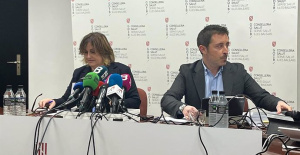 Balearic PSOE denounces the director of IbSalut for prevarication for renouncing the mask claim file
Balearic PSOE denounces the director of IbSalut for prevarication for renouncing the mask claim file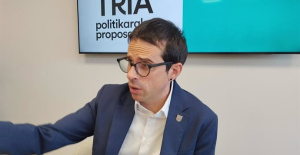 Otxandiano reproaches that PSOE "has lent itself" to taking out ETA in the campaign, like the extreme right against Sánchez
Otxandiano reproaches that PSOE "has lent itself" to taking out ETA in the campaign, like the extreme right against Sánchez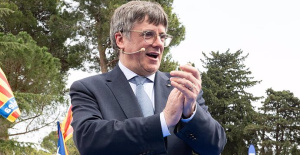 Puigdemont claims to have a "well grasp" of the State and asks to "be respected" to obtain more transfers
Puigdemont claims to have a "well grasp" of the State and asks to "be respected" to obtain more transfers How Blockchain in being used to shape the future
How Blockchain in being used to shape the future Not just BTC and ETH: Here Are Some More Interesting Coins Worth Focusing on
Not just BTC and ETH: Here Are Some More Interesting Coins Worth Focusing on Valencia displays its "innovative and technological potential" at the Emerge Americas event in Miami
Valencia displays its "innovative and technological potential" at the Emerge Americas event in Miami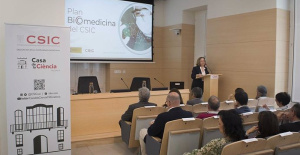 The CSIC incorporates the challenges of robotics, nanotechnology and AI in the new strategic plan for biomedicine
The CSIC incorporates the challenges of robotics, nanotechnology and AI in the new strategic plan for biomedicine Innovation allocates 9.1 million to train 74,000 people and guarantee digital inclusion
Innovation allocates 9.1 million to train 74,000 people and guarantee digital inclusion LIFE SPOT manages to develop new green treatments that eliminate groundwater contamination
LIFE SPOT manages to develop new green treatments that eliminate groundwater contamination A million people demonstrate in France against Macron's pension reform
A million people demonstrate in France against Macron's pension reform Russia launches several missiles against "critical infrastructure" in the city of Zaporizhia
Russia launches several missiles against "critical infrastructure" in the city of Zaporizhia A "procession" remembers the dead of the Calabria shipwreck as bodies continue to wash up on the shore
A "procession" remembers the dead of the Calabria shipwreck as bodies continue to wash up on the shore Prison sentences handed down for three prominent Hong Kong pro-democracy activists
Prison sentences handed down for three prominent Hong Kong pro-democracy activists ETH continues to leave trading platforms, Ethereum balance on exchanges lowest in 3 years
ETH continues to leave trading platforms, Ethereum balance on exchanges lowest in 3 years Investors invest $450 million in Consensys, Ethereum incubator now valued at $7 billion
Investors invest $450 million in Consensys, Ethereum incubator now valued at $7 billion Alchemy Integrates Ethereum L2 Product Starknet to Enhance Web3 Scalability at a Price 100x Lower Than L1 Fees
Alchemy Integrates Ethereum L2 Product Starknet to Enhance Web3 Scalability at a Price 100x Lower Than L1 Fees Mining Report: Bitcoin's Electricity Consumption Declines by 25% in Q1 2022
Mining Report: Bitcoin's Electricity Consumption Declines by 25% in Q1 2022 Oil-to-Bitcoin Mining Firm Crusoe Energy Systems Raised $505 Million
Oil-to-Bitcoin Mining Firm Crusoe Energy Systems Raised $505 Million Microbt reveals the latest Bitcoin mining rigs -- Machines produce up to 126 TH/s with custom 5nm chip design
Microbt reveals the latest Bitcoin mining rigs -- Machines produce up to 126 TH/s with custom 5nm chip design Bitcoin's Mining Difficulty Hits a Lifetime High, With More Than 90% of BTC Supply Issued
Bitcoin's Mining Difficulty Hits a Lifetime High, With More Than 90% of BTC Supply Issued The Biggest Movers are Near, EOS, and RUNE during Friday's Selloff
The Biggest Movers are Near, EOS, and RUNE during Friday's Selloff Global Markets Spooked by a Hawkish Fed and Covid, Stocks and Crypto Gain After Musk Buys Twitter
Global Markets Spooked by a Hawkish Fed and Covid, Stocks and Crypto Gain After Musk Buys Twitter Bitso to offset carbon emissions from the Trading Platform's ERC20, ETH, and BTC Transactions
Bitso to offset carbon emissions from the Trading Platform's ERC20, ETH, and BTC Transactions Draftkings Announces 2022 College Hoops NFT Selection for March Madness
Draftkings Announces 2022 College Hoops NFT Selection for March Madness